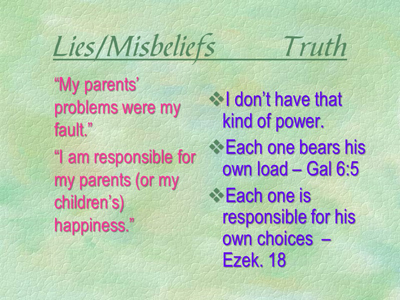 “You’ve made this day a special day by just your being you. There is no person in the whole world like you, and I like you just the way you are.” —Mister Rogers, to every person as we watched his show.
“You’ve made this day a special day by just your being you. There is no person in the whole world like you, and I like you just the way you are.” —Mister Rogers, to every person as we watched his show.
With the news that a documentary about Fred Rogers (Public Television’s “Mister Rogers’ Neighborhood”) will be released this summer, and a movie about him starring Tom Hanks will be in production soon, there has been a good bit of buzz in social media recently. I keep coming across articles about him and links to videos that often move me to grateful tears for this amazing man.
“Mister Rogers” had a heart for children that is unlike anything I’ve ever seen. His TV program ran for 33 years, from 1968 to 2001. My children grew up watching Mister Rogers, and I often sat with them, equally enthralled by his gentleness, his predictable routines (such as changing out of his jacket into a cardigan sweater and a different pair of shoes every single show), and his ability to speak straight to the heart of the audience. Except it wasn’t that we were part of his audience; Mister Rogers communicated in such a powerfully personal way, with such soothing, calm tranquility, that we knew he was speaking to US. Individually.
Even before I learned he was an ordained Presbyterian minister, I sensed there was something deeply spiritual about his message and the way he communicated respect, genuine caring, and encouragement to his “neighbors.” As Jonathan Merritt wrote in The Atlantic,
“Fred’s faith surfaced in subtle, indirect ways that most viewers might miss, but it infused all he did. He believed ‘the space between the television set and the viewer is holy ground,’ but he trusted God to do the heavy lifting. The wall of his office featured a framed picture of the Greek word for ‘grace,’ a constant reminder of his belief that he could use television ‘for the broadcasting of grace through the land.’ Before entering that office each day, Rogers would pray, “Dear God, let some word that is heard be yours.”{{1}
I once heard a wise man say that since we are made in the image of God, everything we do and say either tells the truth about God, or it tells a lie about God. It seems to me that Fred Rogers showed millions of children what Father God is like. I am especially reminded of God’s own statement about Himself in Exodus 34:6:
The Lord, the Lord God, compassionate and gracious, slow to anger, and abounding in lovingkindness and truth . . .
For decades, Mister Rogers demonstrated compassion: for people with different skin than his, for people with disabilities, for people going through hard times, and especially by showing unrelenting respect for children—their fears (such as haircuts and being sucked down the bathtub drain) and their pains (like divorce), and their celebrations.
Grace was a huge part of Mister Rogers’ worldview. He bestowed dignity and value on everyone because of his belief that all people deserve dignity and appreciation as God’s creations, made in His image. Who know how many little hearts God healed through the song “It’s You I Like”? In fact, when Joan Rivers had him as a guest on the Tonight Show, you can see grace wash over her like the warm blessing that it was:
God is slow to anger, and His servant Mister Rogers showed an amazing degree of patience and self-control in his shows. He always moved and spoke slowly and deliberately, as an antidote to the barrage of “Hurry up, hurry up!” children often hear from their frazzled, impatient caregivers.
God abounds in lovingkindness and truth, and apparently so did Mister Rogers. One of his quotes:
“There are three ways to ultimate success:
The first way is to be kind.
The second way is to be kind.
The third way is to be kind.”
This is a great quote, but countless people report that Fred Rogers lived it. He was the epitome of kindness—to everyone. One journalist reported a typical scene when he walked on the streets of New York:
“. . .but every time [the show’s producer Margy Whitmer] turned around, there was Mister Rogers putting his arms around someone, or wiping the tears off someone’s cheek, or passing around the picture of someone’s child, or getting on his knees to talk to a child. Margy couldn’t stop them, and she couldn’t stop him. “Oh, Mister Rogers, thank you for my childhood.” “Oh, Mister Rogers, you’re the father I never had.” “Oh, Mister Rogers, would you please just hug me?” {{2}
In the wake of the #metoo movement, ugly truths are emerging about certain celebrities. It’s good to be able to highlight one of the good guys, who shone his light to the glory of God as he nourished the souls of millions of children and anyone else who watched his TV show.
I think we are all hungry to know that we are loved, especially by God. I look forward to meeting him in heaven one day. I will close with this story I found on Facebook that powerfully expresses Mister Rogers’ legacy:
“A good portion of my pro-bono work is defending abused children. It’s a cause close to my heart. In the course of my work I met a man who was an adult survivor. You wouldn’t have known it looking at him. He was this gigantic Polynesian guy. Wild curly hair. I think of him every time I see Khal Drogo on GoT. He was counseling some of the little kids, and doing a fantastic job of it.
“I visited his home to get his opinion on something and I noticed a little toy on his desk. It was Trolley. Naturally curious, I asked him about it. This is what he told me:
“‘The most dangerous time for me was in the afternoon when my mother got tired and irritable. Like clockwork. Now, she liked to beat me in discreet places so my father wouldn’t see the bruises. That particular day she went for the legs. Not uncommon for her. I was knocked down and couldn’t get back up. Also not uncommon. She gave me one last kick, the one I had come to learn meant ‘I’m done now’. Then she left me there upstairs, face in the carpet, alone. I tried to get up, but couldn’t. So I dragged myself, arm over arm, to the television, climbed up the tv cabinet and turned on the TV.
“‘And there was Mr. Rogers. It was the end of the show and he was having a quiet, calm conversation with those hundreds of kids. In that moment, he seemed to look me in the eye when he said ‘And I like you just for being you’. In that moment, it was like he was reaching across time and space to say these words to me when I needed them most.
“‘It was like the hand of God, if you’re into that kind of thing. It hit me in the soul. I was a miserable little kid. I was sure I was a horrible person. I was sure I deserved every last moment of abuse, every blow, every bad name. I was sure I earned it, sure I didn’t deserve better. I *knew* all of these things … until that moment. If this man, who I hadn’t even met, liked me just for being me, then I couldn’t be all bad. Then maybe someone could love me, even if it wasn’t my mom.
“‘It gave me hope. If that nice man liked me, then I wasn’t a monster. I was worth fighting for. From that day on, his words were like a secret fortress in my heart. No matter how broken I was, no matter how much it hurt or what was done to me, I could remember his words, get back on my feet, and go on for another day.
“‘That’s why I keep Trolley there. To remind me that, no matter how terrible things look, someone who had never met me liked me just for being me, and that makes even the worst day worth it to me. I know how stupid it sounds, but Mr. Rogers saved my life.’
“The next time I saw him, he was talking to one of my little clients. When they were done with their session, he helped her out of her chair, took both of her hands, looked her in the eyes and said: ‘And remember, I like you just for being you.’
“That, to me, is Mr. Rogers’ most powerful legacy. All of the little lives he changed and made better with simple and sincere words of love and kindness.”
1. www.theatlantic.com/politics/archive/2015/11/mister-rogers-saint/416838/
2. www.esquire.com/entertainment/tv/a27134/can-you-say-hero-esq1198/
This blog post originally appeared at
blogs.bible.org/engage/sue_bohlin/mister_rogers_and_the_hunger_for_god
on May 1, 2018.
 As a polio survivor since I was an infant, living with a disability has been my “normal.” But, like most polio survivors, I just gritted through the limitations and inconveniences, trying to keep up with everyone else.
As a polio survivor since I was an infant, living with a disability has been my “normal.” But, like most polio survivors, I just gritted through the limitations and inconveniences, trying to keep up with everyone else. “The heavens declare the glory of God,” Psalm 19 tells us. On August 21, 2017, millions of Americans will have an incredible opportunity to see His heavenly glory in a way most of us never have: through a total solar eclipse. On a path running from Oregon to South Carolina, observers on the ground will see the moon slip in front of the sun, blocking out all its light and dropping the temperature drastically (about 10 to 15 degrees Fahrenheit) and suddenly.
“The heavens declare the glory of God,” Psalm 19 tells us. On August 21, 2017, millions of Americans will have an incredible opportunity to see His heavenly glory in a way most of us never have: through a total solar eclipse. On a path running from Oregon to South Carolina, observers on the ground will see the moon slip in front of the sun, blocking out all its light and dropping the temperature drastically (about 10 to 15 degrees Fahrenheit) and suddenly. During an eclipse, the heavens declare the glory of God by allowing us to see things about the sun we wouldn’t be able to observe any other way, beautiful and gloriously resplendent. Just before totality we can see “Baily’s Beads.” Only seen during an eclipse, bright “beads” appear at the edge of the moon where the sun is shining through lunar valleys, a feature of the moon’s rugged landscape. This is followed by the “diamond ring” effect, where the brightness of the sun radiates as a thin band around the circumference of the moon, and the last moments of the sun’s visibility explode like a diamond made of pure light. After the minutes of totality, the diamond ring effect appears again on the opposite side of the moon as the first rays of the sun flare brilliantly. These sky-jewelry phenomena are so outside of mankind’s control that witnessing them stirs our spirits (even on YouTube!) with the truth of Romans 1:20—”God’s invisible qualities—his eternal power and divine nature—have been clearly seen, being understood from what has been made, so that people are without excuse.”
During an eclipse, the heavens declare the glory of God by allowing us to see things about the sun we wouldn’t be able to observe any other way, beautiful and gloriously resplendent. Just before totality we can see “Baily’s Beads.” Only seen during an eclipse, bright “beads” appear at the edge of the moon where the sun is shining through lunar valleys, a feature of the moon’s rugged landscape. This is followed by the “diamond ring” effect, where the brightness of the sun radiates as a thin band around the circumference of the moon, and the last moments of the sun’s visibility explode like a diamond made of pure light. After the minutes of totality, the diamond ring effect appears again on the opposite side of the moon as the first rays of the sun flare brilliantly. These sky-jewelry phenomena are so outside of mankind’s control that witnessing them stirs our spirits (even on YouTube!) with the truth of Romans 1:20—”God’s invisible qualities—his eternal power and divine nature—have been clearly seen, being understood from what has been made, so that people are without excuse.” A total solar eclipse offers so much more, though, than Baily’s Beads and the Diamond Ring. At the moment of totality, the pinkish arc of the sun’s chromosphere (the part of the sun’s atmosphere just above the surface) suddenly “turns on” as if an unseen hand flips a switch. I knew God is very fond of pink because of how He paints glorious sunrises and sunsets in Earth’s skies, but those fortunate enough to see a total eclipse can see how He radiates pinkness from the sun itself! The heavens declare the glory of God!
A total solar eclipse offers so much more, though, than Baily’s Beads and the Diamond Ring. At the moment of totality, the pinkish arc of the sun’s chromosphere (the part of the sun’s atmosphere just above the surface) suddenly “turns on” as if an unseen hand flips a switch. I knew God is very fond of pink because of how He paints glorious sunrises and sunsets in Earth’s skies, but those fortunate enough to see a total eclipse can see how He radiates pinkness from the sun itself! The heavens declare the glory of God! For the few minutes of totality, the naked eye can see the sun’s lovely corona (Latin for crown) streaming out from the sun. We can’t see the corona except during an eclipse because looking straight at the sun for even a few seconds causes eye damage, and because the sun’s ball of fire overwhelms the (visually) fragile corona. This is another way that an eclipse allows us to see how the heavens declare the glory of God.
For the few minutes of totality, the naked eye can see the sun’s lovely corona (Latin for crown) streaming out from the sun. We can’t see the corona except during an eclipse because looking straight at the sun for even a few seconds causes eye damage, and because the sun’s ball of fire overwhelms the (visually) fragile corona. This is another way that an eclipse allows us to see how the heavens declare the glory of God. But then I was able to speak briefly about what we have in common, a situational loss of freedom. I have lost the ability—the freedom—to walk, and they have temporarily lost the ability—the freedom—to walk out of lockup. Still, even while imprisoned by our situations, Jesus offers true freedom that has nothing to do with our circumstances. He promised to His disciples, “You will know the truth, and the truth will set you free.” He even said, “If the Son sets you free, you will be free indeed.” (John 8:32, 36)
But then I was able to speak briefly about what we have in common, a situational loss of freedom. I have lost the ability—the freedom—to walk, and they have temporarily lost the ability—the freedom—to walk out of lockup. Still, even while imprisoned by our situations, Jesus offers true freedom that has nothing to do with our circumstances. He promised to His disciples, “You will know the truth, and the truth will set you free.” He even said, “If the Son sets you free, you will be free indeed.” (John 8:32, 36) • As we look at our present, Jesus can set us free from the “tapes” of lies and misbeliefs that control our lives, as we replace the lies with His truths. For example, a number of the ladies at the retreat had lived in bondage to the lie that they had to be perfect in order to be acceptable. The weight of needing to be perfect is soul-killing because it’s impossible for imperfect people to be perfect! But we can be set free by embracing the truth that only God is perfect, so we can let go of the unrealistic expectation that we can ever live perfectly this side of heaven. God knows we will stumble, and He has promised to hold our hand when we do. And beyond that, He understands our longing for perfection is actually a longing for the perfect home of Eden, which we will get to experience on the New Earth we read about in the book of Revelation.
• As we look at our present, Jesus can set us free from the “tapes” of lies and misbeliefs that control our lives, as we replace the lies with His truths. For example, a number of the ladies at the retreat had lived in bondage to the lie that they had to be perfect in order to be acceptable. The weight of needing to be perfect is soul-killing because it’s impossible for imperfect people to be perfect! But we can be set free by embracing the truth that only God is perfect, so we can let go of the unrealistic expectation that we can ever live perfectly this side of heaven. God knows we will stumble, and He has promised to hold our hand when we do. And beyond that, He understands our longing for perfection is actually a longing for the perfect home of Eden, which we will get to experience on the New Earth we read about in the book of Revelation. • One of my dear friends discovered, in the process of working through the challenges of parenting a prodigal adult child, that there is freedom in owning 100% of our own part and 0% of other people’s choices and behaviors. There’s no point in taking on guilt or responsibility for someone else’s choices; they are completely responsible for their part.
• One of my dear friends discovered, in the process of working through the challenges of parenting a prodigal adult child, that there is freedom in owning 100% of our own part and 0% of other people’s choices and behaviors. There’s no point in taking on guilt or responsibility for someone else’s choices; they are completely responsible for their part.